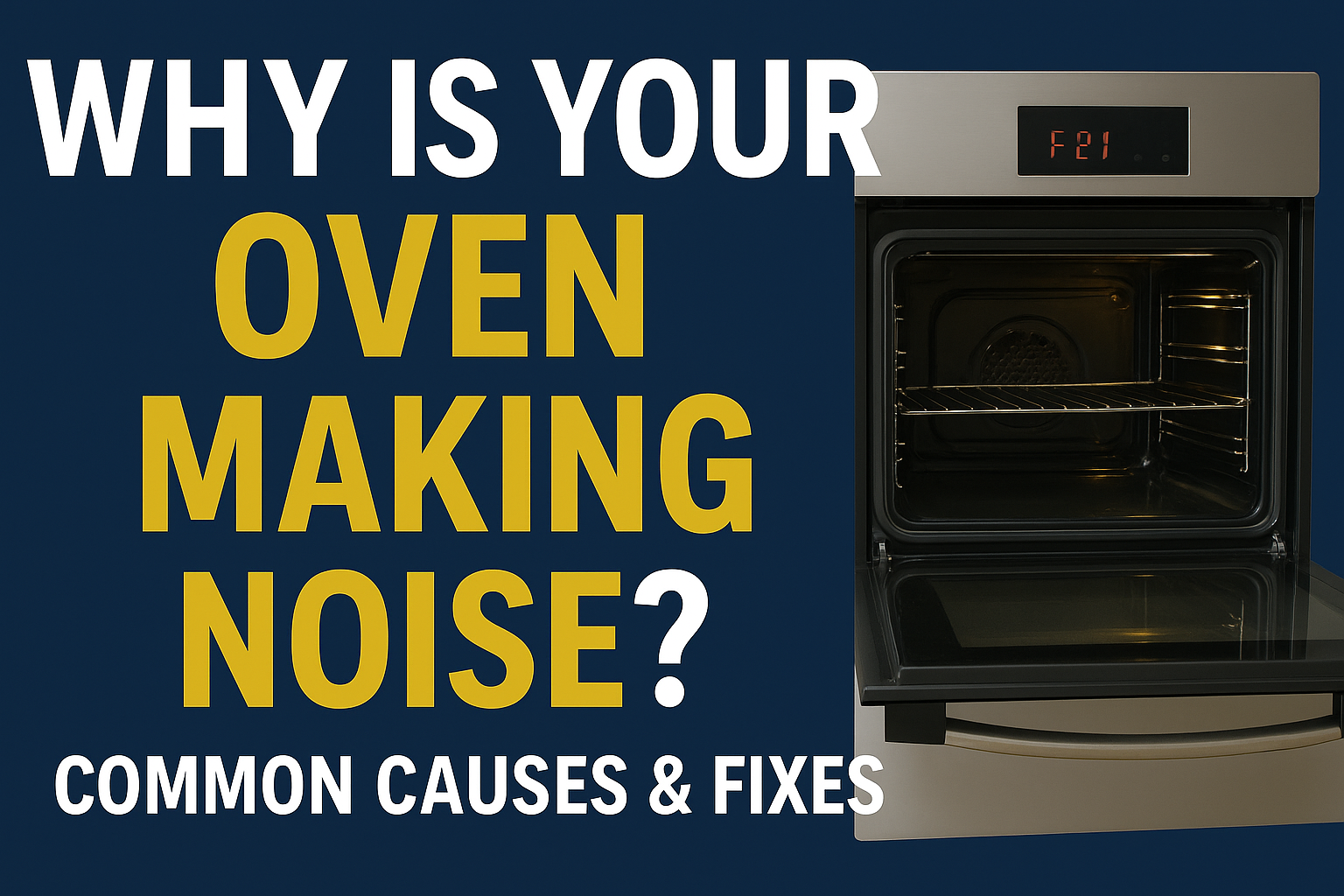Since a modern oven should operate silently, odd noises are typically an indication that something is wrong. Whether your oven is clicking, popping, buzzing, or making a high-pitched sound, the issue usually indicates a certain component within the appliance. We’ll discuss the most frequent reasons below, along with whether these noises are harmful or just natural.
Why Is My Oven Making Noise When Off?
When you switched off your oven and it made a noise, the following could be the cause:
- Cooling Fans Running: A lot of electric ovens include cooling fans that keep spinning even after you turn them off. This helps avoid overheating and is often normal.
- Electrical Buzzing: When the oven is not in use, a malfunctioning relay switch or control board sometimes produces a low buzzing sound.
It’s worth having a specialist check the appliance if the noise persists for a considerable amount of time after it has been turned off.
Oven Making Noise When Preheating
During preheating, it’s common to hear:
- During preheating: The following sounds are frequently heard: • Popping Noises: These are caused by the metal within expanding as it heats up. usually not harmful.
- Clicking Sounds: To control temperature, the oven’s internal relays turn the heating elements on and off. While occasional loud clicking is common, persistent sounds could indicate a malfunctioning thermostat.
Electric Oven Making Noise While Heating Up
When an electric oven produces noise, particularly a buzzing or humming sound, it could mean:
- Loose Fan Blades: The oven fan may be vibrating against other parts if it is producing noise while heating up.
- Worn Motor Bearings: As the fan motor ages, it may produce whirring or grinding noises.
- Heating Elements Expanding: As elements heat up, some slight popping or crackling is to be expected.
Why Is My Oven Making a High-Pitched Noise?
If you notice a high-pitched noise (like whistling or squealing), the likely culprits are:
- Fan motor problems: A squeal is frequently caused by worn or dry motor bearings.
- Loose Components: A harsh sound may be produced by a loose panel or fan blade that resonates.
- Electrical Components: A malfunctioning control board may occasionally be indicated by a high-pitched electrical buzz.
Is a Noisy Oven Fan Dangerous?
Generally speaking, a noisy oven fan poses little threat, but it should not be disregarded:
- It can simply be regular wear if the sound is slight, such as a faint hum.
- The motor may fully fail if there is loud grinding, rattling, or screaming, which would prevent your oven from heating up evenly.
- Ignoring the problem might lead to more harm to other parts.
If the noise is too loud or you smell burning, unplug the oven for your own safety.
Different Types of Oven Noises Explained
- Buzzing Noise in the Oven: Usually caused by electrical parts or a vibrating transformer.
- Oven Noise Clicking: Usually caused by relays managing the heating element, this is okay unless it is persistent or abnormally loud.
- Oven Popping Noise: This is the often innocuous expansion of heating elements or metal as temperatures change.
When to Call for Oven Repair
- Continuous loud noises that get worse over time.
- High-pitched squealing from the fan motor.
- Clicking or buzzing even when the oven is off.
- Burning smell or signs of overheating.



Leave a Reply
Want to join the discussion?Feel free to contribute!